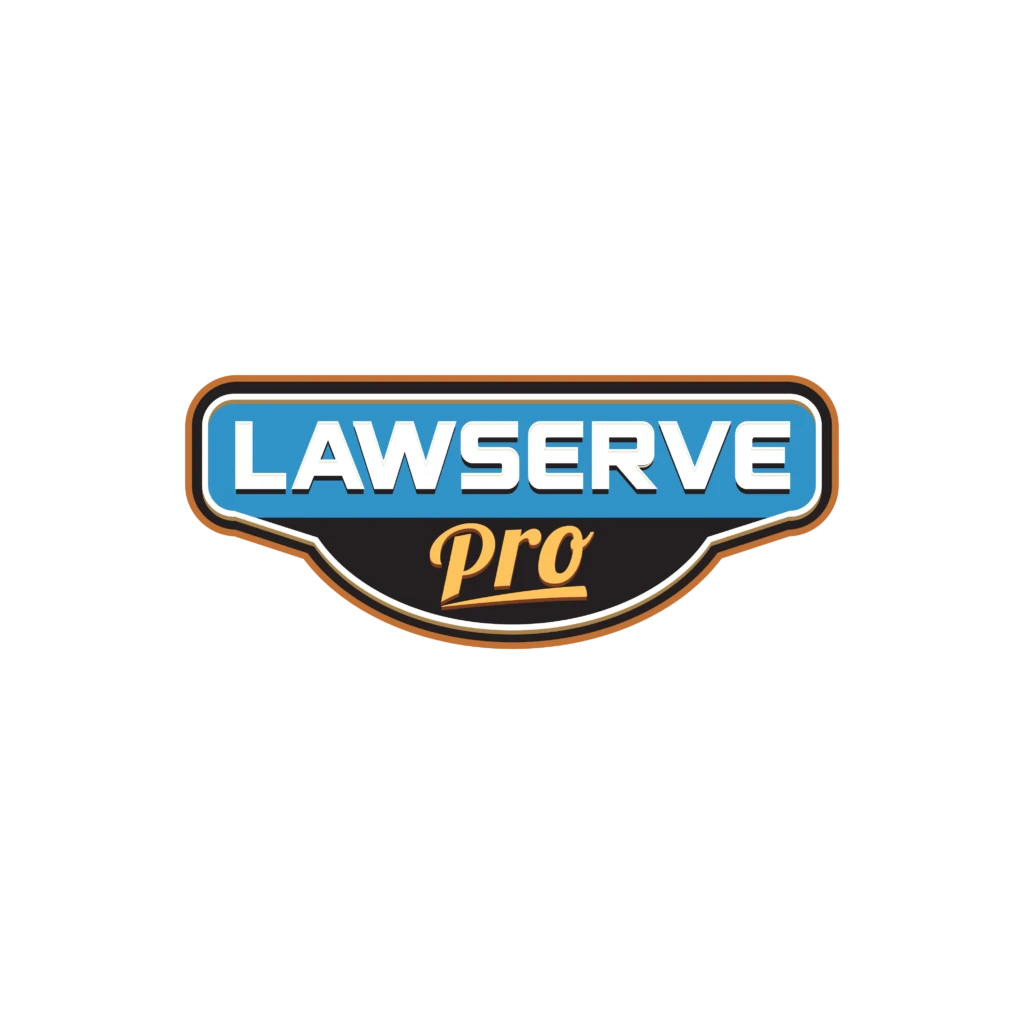Service of Process in Guardianship Cases
I Was Served With A Subpoena, Can I Ignore It?
Navigating the legal system can be complex, and ensuring every step is handled with precision is paramount to a case’s success. At LawServePro, we understand the weight of this responsibility, especially when it involves sensitive matters like guardianship proceedings. Serving legal documents isn’t just a formality; it’s an important element that propels your guardianship case forward.
Guardianship cases, whether involving an adult alleged to be incapacitated or a minor, are initiated by filing a petition with the court. Once the petition is filed, a critical responsibility falls upon the person filing the case i.e., the petitioner. Unlike some other aspects of the legal process, the court itself does not undertake the task of notifying everyone involved. You, as the petitioner, must ensure that copies of the essential documents are properly delivered to the required individuals and agencies. This process is known as “service of process”.
Why is Service of Process So Important in Guardianship Cases?
Proper service is not merely a procedural hurdle; it’s a cornerstone of due process. It ensures that all “interested parties” i.e., individuals and entities who have a legal stake or may be affected by the outcome of the case, are formally notified that a guardianship petition has been filed and given an opportunity to respond or appear in court. If documents aren’t served correctly, for instance, your hearing might get cancelled or face major delays. A case can simply grind to a halt if service isn’t completed within the set timeframe. Further, if you don’t give certain parties the required notice, it could even be grounds for a guardian’s removal later on.
Who Needs to Be Served?
The people who must receive notice in a guardianship case can be quite extensive and often varies depending on the specific circumstances of the case and the jurisdiction. Generally, the individuals and entities you must serve include the person you are asking to be the guardian over (often called the “proposed protected person” or “ward”). In addition, many of the proposed protected person’s relatives must be served, including their spouse, parents, children, siblings, grandparents, and sometimes older grandchildren (age 14 and older in some jurisdictions).
Beyond immediate family, other individuals or entities who have care or custody of the person, or who have been nominated as guardian, also typically require service. Depending on the ward’s situation, certain agencies may also need to be notified, such as hospitals or care facilities where the person resides, or government agencies like those handling Medicaid or Veteran’s benefits if the ward receives them. The attorney for the proposed ward, if any, must also be served. The court may also direct that other interested persons receive notice.
It is important to serve all required people, as missing even one can cause significant delays.
What Documents Must Be Served?
The primary documents that must be served at the beginning of a guardianship case are a copy of the Petition (the document requesting the guardianship) and the Citation or Notice of Hearing (the document setting the court date). Copies of any papers attached to the Petition must also be served with it. In some jurisdictions, other specific orders or informational forms may also be required as part of the initial service packet, such as orders appointing a Guardian ad Litem, Visitor, or Expert Examiner.
Methods of Service
The following are the acceptable methods for serving documents in guardianship cases:
This is the hand-delivery of the documents. It is often a mandatory requirement for serving the proposed protected person, even if they are unresponsive (for example, leaving the documents on their hospital bed and stating what they are). Personal service must be performed by a “neutral person”. This person must be at least 18 years old and cannot be you, the petitioner, a relative, a significant other, or anyone else who signed the petition or is entitled to receive notice. The server must simply hand the documents to the person or, if they refuse or are unable to accept, leave them nearby while explaining what they are. Options for who can perform personal service include someone you know, the county sheriff (who typically charges a fee), or a professional process server you hire. Personal service usually has a deadline related to the hearing date, such as at least 10 days before the hearing or 15 days before the hearing.
2. Service by Mail
Documents can often be served on relatives (other than those requiring personal service) and agencies by mail. Common methods mentioned are certified mail, return receipt requested, or ordinary first-class mail. Like personal service, the mailing must be done by a neutral person who is at least 18 years old and not a party or petitioner. Service by mail also has deadlines, such as at least 20 days before the hearing for certified mail, or at least 14 days before the hearing for certified or first-class mail in North Dakota.
3. Other Methods
In some cases, if a person is willing to accept the papers without formal service, they can sign a “Consent and Waiver of Service” which must then be filed with the court. If, after conducting a diligent search (due diligence), you are unable to locate certain relatives, you may be able to ask the court for permission to serve by publication (publishing the notice in a newspaper). This is a more complex process requiring court approval and proof of diligent efforts.
Proof of Service: Showing the Court it Was Done Right
The process of service isn’t complete just because the documents were delivered. You must provide proof to the court that service was properly made. This proof is filed with the court and tells the judge how, when, and where the documents were served.
Different forms are used depending on the method of service, such as an Affidavit of Service or Declaration of Service for personal delivery or mail, or an Affidavit of Publication for service by publication. It is important to make sure that the proof of service form must be filled out, signed, and dated by the person who actually performed the service, not the petitioner. This signed proof must then be returned to you so you can file it with the court.
Filing the proof of service is mandatory. If it is not filed, the court will not act on your guardianship petition. There are typically deadlines for filing proof of service as well, often several days before the scheduled hearing.
The Complexity of Serving in Guardianship Cases and How LawServePro Helps
Navigating the complex web of court procedures for service can be challenging, especially for individuals representing themselves who are expected to know and follow applicable laws and rules. Court self-help centers and materials aim to provide assistance, but the steps are complicated and require careful attention to detail. Errors or omissions can easily lead to delays or the need to restart the process.
This is where professional legal support services, like LawServePro, become invaluable. Our firm specializes in ensuring that your important legal documents are served correctly and efficiently. We understand the specific legal requirements regarding service of process in various case types, including complex guardianship matters. Our team of experienced certified process servers, some with military and law enforcement training, are equipped to handle even the most difficult service jobs. We are dependable, professional, and promise to get the job done right the first time. By utilizing our services, you can have confidence that the service requirements for your guardianship case are met accurately and on time, allowing your case to move forward without unnecessary delays.
Ensure Your Guardianship Case Proceeds Smoothly: Contact LawServePro today!
LawServePro is large enough to meet all your process serving needs, but small enough to give you the attention you deserve. Don’t let complicated service requirements delay your critical guardianship case. LawServePro provides the reliable, professional process serving you need to ensure all parties are properly notified and your proof of service is filed correctly.
Contact LawServePro today to handle your guardianship process serving needs. Visit us at https://lawservepro.com to learn more.
AGGRESSIVE AND PROFESSIONAL NATIONWIDE PRIVATE PROCESS SERVERS
Here at LawServePro, it’s our number one priority to make your job easier. Whether you need legal documents served, a foreign subpoena domesticated, or court documents retrieved, our expert team of professionals are ready to help. Call today for a free quote!
Account
Connect
National Headquarters
8482 Fort Smallwood Road
Suite B-110
Pasadena, MD 21122
8482 Fort Smallwood Road
Suite B-110
Pasadena, MD 21122
© Copyright by LawServePro 2021 | Web Design by Exo Agency
No products in the cart.

